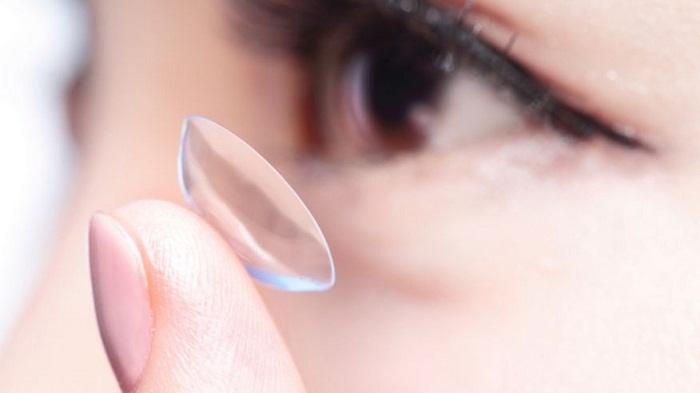Here`s what really happens when you sleep in your contact lenses

When we sleep, we lose ambient oxygen exposure to the cornea, which is needed to keep the cornea healthy. We are still able to get it in other ways—like through blood vessels—but we are getting less than we do when we’re awake. “What a contact lens does is limit the oxygen even more because it creates a barrier between the oxygen and the cornea,” explains Wohl. “Some lenses—extended wear ones—allow the oxygen through though,” says Wohl, but if not enough oxygen gets through, you can experience what is called hypoxia (oxygen deprivation in a region of the body).
You also increase your chances of developing an infection, because bacteria can get onto the cornea and when your eyes are closed, there’s nothing to flush it away. “The bacteria can then become opportunistic and literally start to eat away at your cornea,” says Wohl. “Worst case scenario from that is loss of vision.” Yikes!
If you fall asleep accidentally with your lenses in for just one night, you’re unlikely to experience any serious issues. But if it becomes a more frequent habit or you’re purposefully wearing lenses overnight that aren’t mean to be, you’re upping your chance of a serious health risk. If you start to notice that your eyes are extremely red (we’re talking very bloodshot), you feel like there’s something in your eye and it’s irritated all the time, your eye lid is looking inflamed, you aren’t seeing as well as you used to, or if when you look at an indoor lamp it feels like you’re looking directly at the sun, these are signs that you could have an infection and you should see your eye doctor right away. “The good news is that most of the time it’s an acute episode that can usually be corrected by not wearing the contact lens and allowing the body to heal itself,” says Wohl. “If it’s worse, your doctor may need to give you a prescription.”
So why even take a chance? Make it a routine to take your contact lenses out every night before you go to sleep. “I’m more on the conservative side of things,” says Wohl, “so even with my extended wear patients, if it isn’t too much hassle, I recommend that everyone try to take them out every single day. If you ask me, that’s the healthiest option.”















































